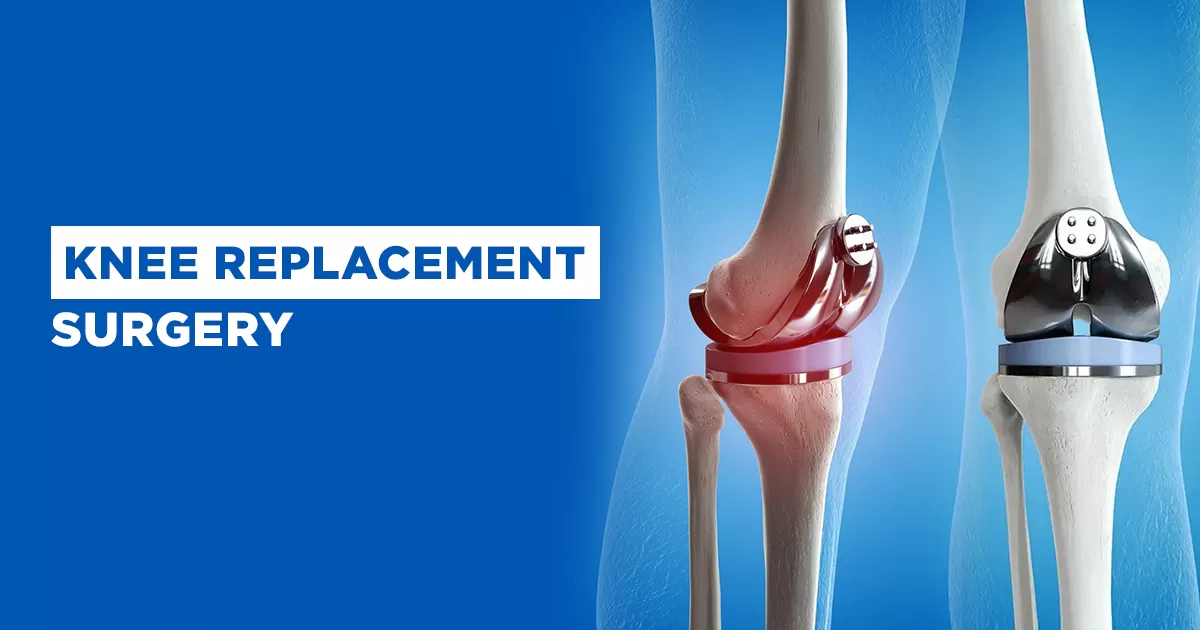Understanding the Types of Knee Replacement Surgery
What Is Knee Replacement Surgery?
Knee replacement, or knee arthroplasty, involves removing damaged bone and cartilage from the knee joint and replacing it with artificial components (implants). The goal is to relieve pain, correct deformity, and improve mobility.
There are four main types of knee replacement surgeries, each serving specific conditions and levels of joint damage.
1. Total Knee Replacement (TKR)
Best for: Severe arthritis or joint damage in all three compartments of the knee.
Total Knee Replacement is the most common and comprehensive form of knee surgery. It involves replacing the entire surface of the thigh bone (femur), shin bone (tibia), and often the kneecap (patella) with artificial implants.
Key Features:
- Entire knee joint is resurfaced.
- Recommended when all compartments are damaged.
- Long-lasting results (often 15–20+ years).
2. Partial Knee Replacement (PKR)
Best for: Localized damage (medial, lateral, or patellofemoral compartment).
Also known as unicompartmental knee replacement, this procedure is less invasive and retains more of your natural knee structure.
Key Features:
- Only the damaged portion is replaced.
- Less bone is removed.
- Faster recovery, less post-op pain.
3. Kneecap Replacement (Patellofemoral Arthroplasty)
Best for: Arthritis confined to the underside of the kneecap and femoral groove.
In this procedure, only the patellofemoral compartment is replaced. It's a good choice if your pain is limited to the front of the knee.
Key Features:
- Preserves healthy knee structures.
- Lower surgical risk and shorter recovery.
- Can be converted to a TKR if needed later.
4. Revision Knee Replacement
Best for: Failed or worn-out previous knee replacement.
A revision knee surgery involves removing the old implants and replacing them with new components. It’s more complex than initial surgery and requires specialized expertise.
Common Reasons:
- Implant wear or loosening.
- Infection in the joint.
- Instability or poor function.
Choosing the Right Type of Surgery
Choosing the most appropriate knee surgery depends on multiple factors:
- Extent of joint damage
- Age and activity level
- Overall health and medical history
- Previous surgeries or implants
Dr. Devasis Sarangi performs a thorough clinical evaluation, diagnostic imaging, and patient consultation before recommending a treatment plan that aligns with your goals and lifestyle.
Why Choose Dr. Devasis Sarangi for Knee Replacement Surgery?
- Over a decade of surgical experience
- Fellowship-trained in joint replacement procedures
- Minimally invasive and patient-centered approaches
- Advanced post-operative care and rehabilitation support
Final Thoughts
Knee replacement surgery is a life-changing solution for many suffering from chronic joint pain. Understanding the types of surgeries available helps patients make informed decisions about their health.
If you're considering knee replacement, schedule a consultation with Dr. Devasis Sarangi today. Regain your mobility, reduce pain, and step into a better quality of life.


